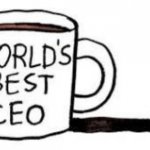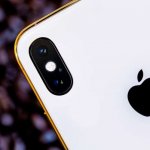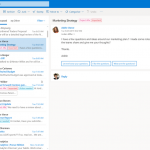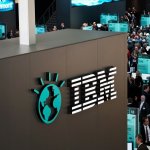 data analytics not only as a competitive advantage in selling diapers, cereal and soda pop, but also as an important line of revenue in and of itself.
data analytics not only as a competitive advantage in selling diapers, cereal and soda pop, but also as an important line of revenue in and of itself.
The supermarket chain, which reported $108.5 billion in sales for fiscal 2014 in March, last week promoted CIO Chris Hjelm to executive vice president to oversee a wholly owned analytics subsidiary. Mr. Hjelm remains Kroger’s CIO and also leads indirect sourcing, corporate travel, customer support and research and development.
The 84.51 Degrees subsidiary, whose name refers to the longitude of Kroger headquarters in Cincinnati, was formed this year when Kroger bought out Tesco PLC from a joint venture the two grocery giants had created in 2003 to study the buying habits of supermarket customers. Like the joint venture before it, 84.51 Degrees sells analytics services to key Kroger suppliers and consumer packaged goods companies such as , Del Monte Foods Inc., PepsiCo Inc. and Hallmark Cards Inc.
Nikki Baird, a managing partner at Retail Systems Research LLC, says Kroger’s advantage is on the level of detail about trends it can offer. “Suppliers don’t see the consumer side of the data on their own,” she said. “They can see in a given store they’ve sold 1,000 units of corn in a day. But that doesn’t tell you anything about who bought it and what they bought with it. That’s where the opportunity is.”
Want to publish your own articles on DistilINFO Publications?
Send us an email, we will get in touch with you.
A Kroger spokesman declined to specify sales and profits at 84.51 Degrees or its predecessor and the company does not break out the figures in its financial reports. But analytics represent at least two streams of financial value: insights to increase sales by customers and revenue by selling insights to other companies.
The grocery business continues to reshape itself as margins remain thin. Great Atlantic & Pacific Tea Co. filed for bankruptcy protection in July and plans to close or sell its 296 A&P stores. Safeway Inc. and Albertsons merged in January, creating a larger competitor to Kroger that filed for an initial public offering in July. Wal-Mart Stores Inc., meanwhile, is pressuring suppliers to cut product costs in a bid to increase sales. A few days before Kroger announced 84.51 Degrees in mid-April, Tesco reported a pretax loss of $9.52 billion in a year that included an accounting misstatement, a criminal investigation and the replacement of its CEO.
Kroger’s focus on analytics is part of a broader technology strategy. Using data collected on loyalty cards at check-out, the company sends personalized coupons to customers based on what they buy and how frequently. The coupons arrive via mobile app, e-mail and postal mail. Kroger is also testing systems to let customers buy online and pick up in stores. That’s rare in groceries but common at hardware, electronics and department stores.
While third-parties such as The Nielsen Co. sell shopping data and suppliers do their own internal analytics, Kroger maintains that its analysis is richer. Kroger examines long histories of shopping habits related to individual products and whole categories, combined with information about weather, personal taste preferences and other factors, over time, Mr. Hjelm said.
One service 84.51 Degrees offers to suppliers is advice about new product development, Mr. Hjelm said. Data scientists use algorithms to hunt for trends in shopper tastes, habits and price sensitivity, looking at information picked up from 8 million customers who shop weekly at Kroger stores. Kroger runs 2,625 stores, including its namesakes and Fred Meyer, King Soopers and other banners. Overall, Kroger has data on grocery preferences of 56 million households over 18 years, a spokesman said.
A manufacturer may ask Kroger and 84.51 Degrees to analyze customer purchases to see which flavor cereal they like by region and price point, Mr. Hjelm said. Other services from 84.51 Degrees are analysis and advice on media buys, marketing and pricing.
The analysis is done on aggregated datasets, with no data that could be used to identify individual customers, a Kroger spokesman said.
Date: September 14, 2015






